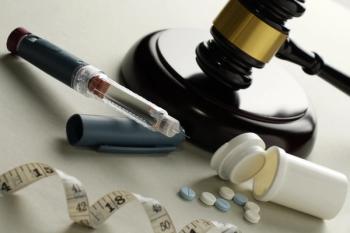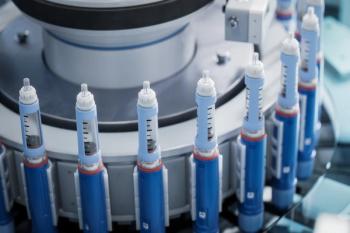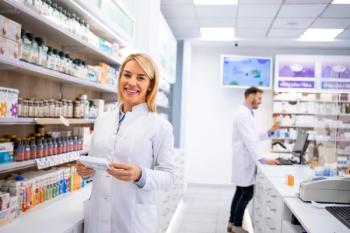
Professors trade war stories on emergency preparedness
Terrorism and natural disasters are putting pharmacists into the forefront of emergency medical care, prompting pharmacy schools to expand their curriculum.
Four clinical pharmacy professors shared their personal experiences at the American Association of Colleges of Pharmacy (AACP) annual meeting in Orlando last month to help instructors integrate emergency preparedness in their course development.
Jeffrey Bratberg, a professor at the University of Rhode Island College of Pharmacy, is part of the state's Disaster Medical Assistance Team. He was sent to an area near the New Orleans Superdome, where he and his team immunized more than 1,000 people exposed to hepatitis and tetanus. They later moved to Jefferson Hospital, where, he said, "there were no phones, no computers, and lots of people wearing guns to welcome you." They worked in 100-degree heat, had no sterile water, and many of the team members became ill. "We treated people with seizure disorders, bacterial infections from the contaminated water, as well as victims of violence," he recalled.
"I never said no," Lust said. "There's no room for ego in a disaster. We burned through antibiotics and lots of drugs." Most of the animals came in dehydrated, and loaded with fleas and ticks. "You have to be prepared to be prepared. You have to have problem-solving skills and be intelligent."
Colleen M. Terriff, a clinical pharmacy professor at Washington State University, was part of a team that coordinated a citywide exercise to train caregivers on how to handle a local exposure to a biological agent. An anthrax letter, which turned out to be a hoax, prompted officials in Spokane to mobilize pharmacists in training for handling bioterrorism emergencies. Third-year pharmacy students were used in the first exercise that involved 18 agencies. To increase the realism of training, more than 823 people were vaccinated with FluMist, and retired cardiologists were on hand to ask tough medical questions.
"Bioterrorism and disaster preparedness are now encouraged in pharmaceutical sciences," said Brenda S. Bray, assistant professor of pharmacotherapy at Washington State University. "It is important to develop leadership skills and to help student pharmacists believe in themselves and their role in emergency preparedness."
Terriff said it is important for pharmacists, in the event of a disaster, to know how to be creative, innovative, think critically, and stay flexible and adaptable.
On a related note, a new guide designed to help pharmacists respond to pandemic influenza has been created through a collaboration by the American Pharmacists Association, ASHP, and the National Association of Chain Drug Stores Foundation. Accessible on any of these organizations' Web sites, it details how pharmacies can help raise awareness and educate the public in the fight against a pandemic and how planning by pharmacists and others can reduce the impact of the disease.
THE AUTHOR is a writer based in Florida.
Newsletter
Pharmacy practice is always changing. Stay ahead of the curve with the Drug Topics newsletter and get the latest drug information, industry trends, and patient care tips.




































